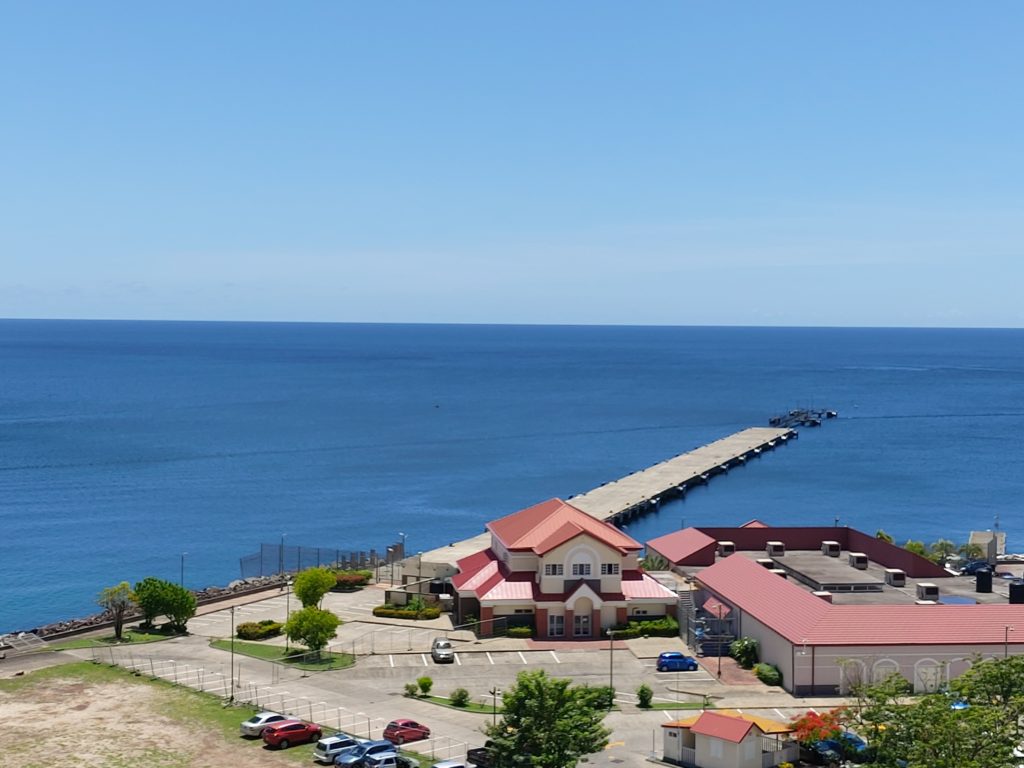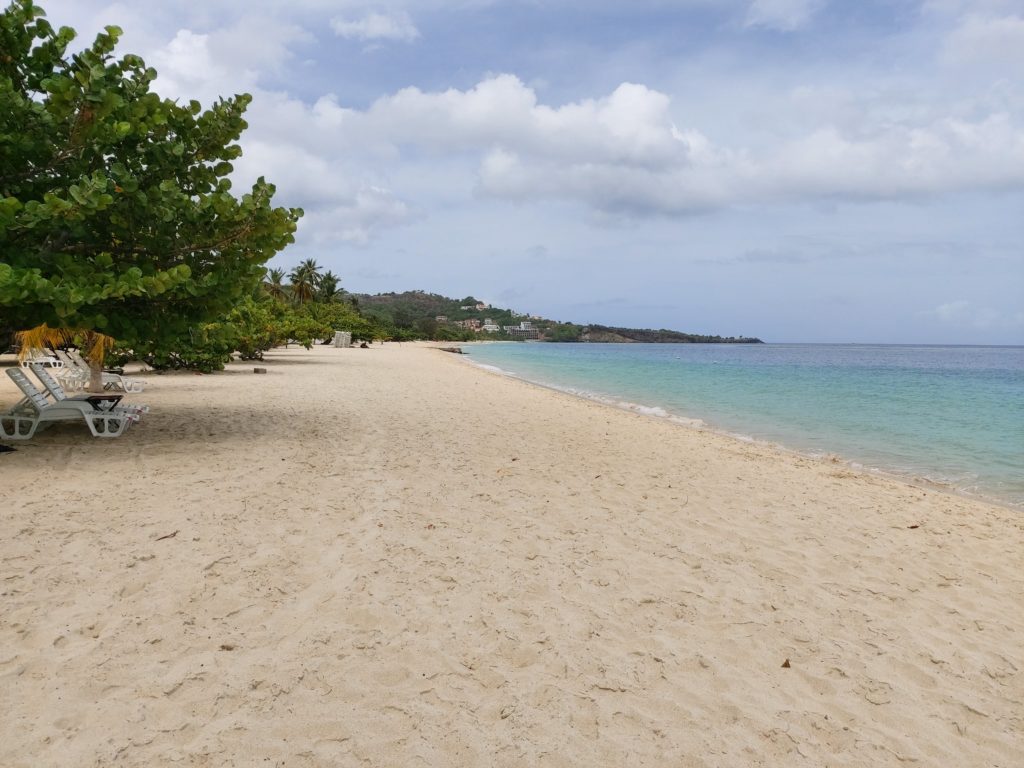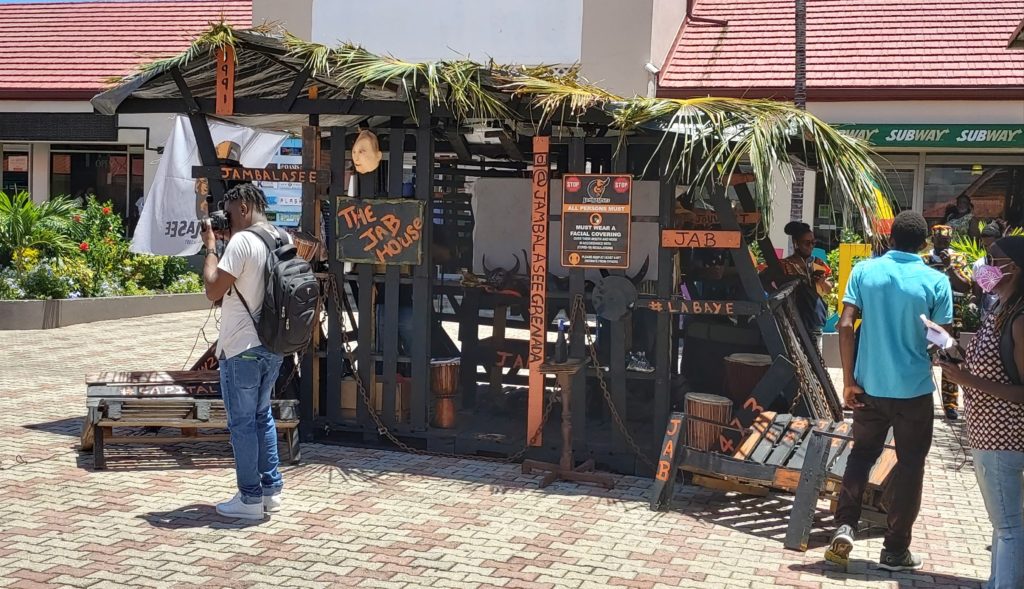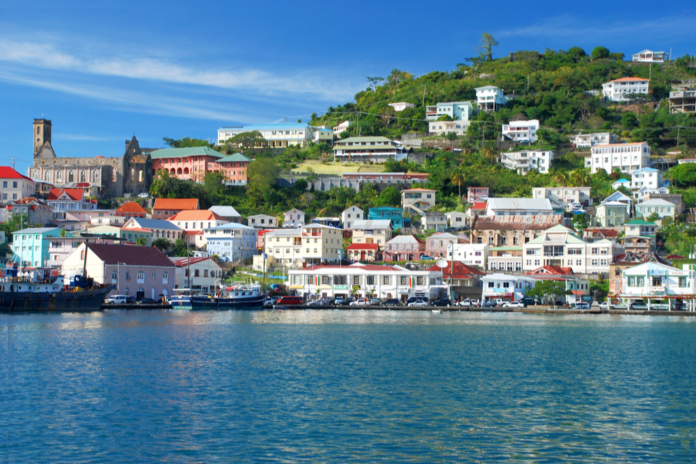Survival and triumph are twin national characteristics of the Grenadian people. The 1983 invasion by American forces and the 2004 devastation of hurricane Ivan are prime examples of the country’s resilience. Admittedly, 2020 started off well enough, but proved to be nothing like any of us were expecting. When Grenada confirmed its first case on March 22nd, a female, age fifty, visiting from the United Kingdom, all plans, projects, goals, and ambitions had to be forcibly reassessed. We quickly had to steady ourselves while the earth gave way beneath our feet.
In the beginning
There was an inkling that all was not well. This spread like wildfire with the mass exodus of students of St. George’s University back to their respective countries. Panic buying was triggered amongst the population in the south of the island. Supermarket shelves were emptied of the most essential of all items, toilet paper, along with other seemingly less essential items like food. There were hushed whispers that the terror was already rampant on the island, why else would students suddenly flee? By March 17th, most were flown out by commercial and private chartered flights. Within a few days social distancing of 6 feet was in place and visits to the elderly were banned.
Lockdown & Uncertain Days
Legislation was passed and the nation was emphatically told that as of the period commencing March 31st, for seven days we were to stay inside our houses, inclusive of our yard space. The first few days were a mini vacation with extended naps, unscheduled meals and late nights. Days passed in deafening silence, there was a sense that you and your household were the only people in the world. In this “aloneness” we had to remind ourselves that every other person was experiencing the same isolation.

Ministry of Health provided timely information via Facebook and the Government Information Service keep us in the know. There were regular press briefings keeping us abreast of the latest strategies, tests administered, numbers confirmed, active, and recovered cases. Grocery days were announced and even then, movement was limited to the parish in which you lived. It was a mad dash to join long queues at the supermarkets. If you were lucky to get in, chances were that the items required were sold out. Shelves could not be stocked quickly enough as suppliers were initially only allowed to make deliveries on grocery days. Those who had better foresight went to their nearest community shops, got served within minutes, and avoided waiting hours, in the blazing sun. Frankly, if it wasn’t available, you simply had to do without.
Adaptability
Of course, substitutions had to be made, recipes adjusted, new ones invented and resourcefulness was the order of the day. Hand sanitizer was the most scarce item and so a local rum producer started to manufacture hand sanitizing liquid. Interestingly enough, we never had a toilet paper crisis as was the case in other countries. Perhaps, this was because the supply was local.
Amateur gardeners expanded their backyard plots and planted victory gardens. New gardeners found themselves hurriedly learning from online videos. Seeds were sown and seedling starts were and are still in high demand. “To plant a garden is to believe in tomorrow” (Audrey Hepburn). It was ok if the supply at the shops was hard to come by as the promise of the harvest was something to look forward to.
Small Businesses
A series of continuous seven days extensions went on for three weeks. Employers were urged to pay salaries despite the loss of income. While established companies could manage to absorb the loss, smaller businesses, sole traders, and new entrepreneurs were severely impacted. With no income being generated, small businesses had no choice but to let staff off work just to make ends meet for their own families. Seasoned farmers had to find alternative markets for produce, especially as all local markets, restaurants and hotels were closed to the public. Fishermen and farmers eventually took to driving around to sell their catch/produce.
Gradually, strict measures started easing, and reopening was done in phases. Caterers, restaurants, and bars offered take away services only. Banks opened for limited hours and offered even more limited services. Bus operators could serve the nation’s roads but with limited passengers, seated in a staggered formation. By June 5th we were down to one active case and on June 18th it got to zero. The nation was finally breathing easier, with masks on of course!

Tourist vendors remain amongst some of the hardest hit. The once-bustling cruise ship complex in St. George’s is now deserted, a silent reminder of days gone by. Grand Anse Beach with its two miles of pristine white sand, lies empty with a spotting of locals here and there.
A local Ministry of Tourism licensed vendor at Annandale Waterfall, proprietor of “The Craft Man” Mr. Davidson, has converted his jewelry and craft business into a mobile enterprise. He is of the view that even if international borders were to reopen this may not necessarily translate into pre-COVID-19 business. He anticipates that visitors may not be so keen to shop. Mr. Davidson’s reasons that with the looming threat of a second wave even local customers are rightly holding on to finances in case there is another immediate shutdown.
The New Normal
Businesses now operate on a strict no mask, no service policy. Hands are sanitized by security guards armed with spray bottles on entry and 6 feet distancing must be adhered to. The public has no choice in the matter, it’s THE LAW.
As much as daily life continues, market vendors, travel agents, and SGU vendors are experiencing a sense of being left behind. The whole world appears to be progressing, earning and making ends meet, while their businesses are still in lockdown. “Spice Mas” is officially canceled but the spirit of celebration could not be stifled as Emancipation Day was marked by a small presentation at the “Jab House”.

Knock on wood, to date, Grenada has not recorded a single COVID-19 related death. Between the period June 5th to June 18th, there was a spell with no active cases recorded. The Government Information Service on 30th July announced that Grenada has recorded its 24th laboratory-confirmed case of COVID-19 and that 5000 Rapid Test and 1252 PCR Tests have been conducted. While repatriation of nationals is ongoing, protocols are still being finalized to facilitate the reopening of borders to commercial flights in an effort to reboot stagnant economies. Progress to fully overcome the effects of the COVID-19 virus is understandably slow as the health of the nationals of Grenada, remains the number one priority, and so we move ahead, one day at a time.



















